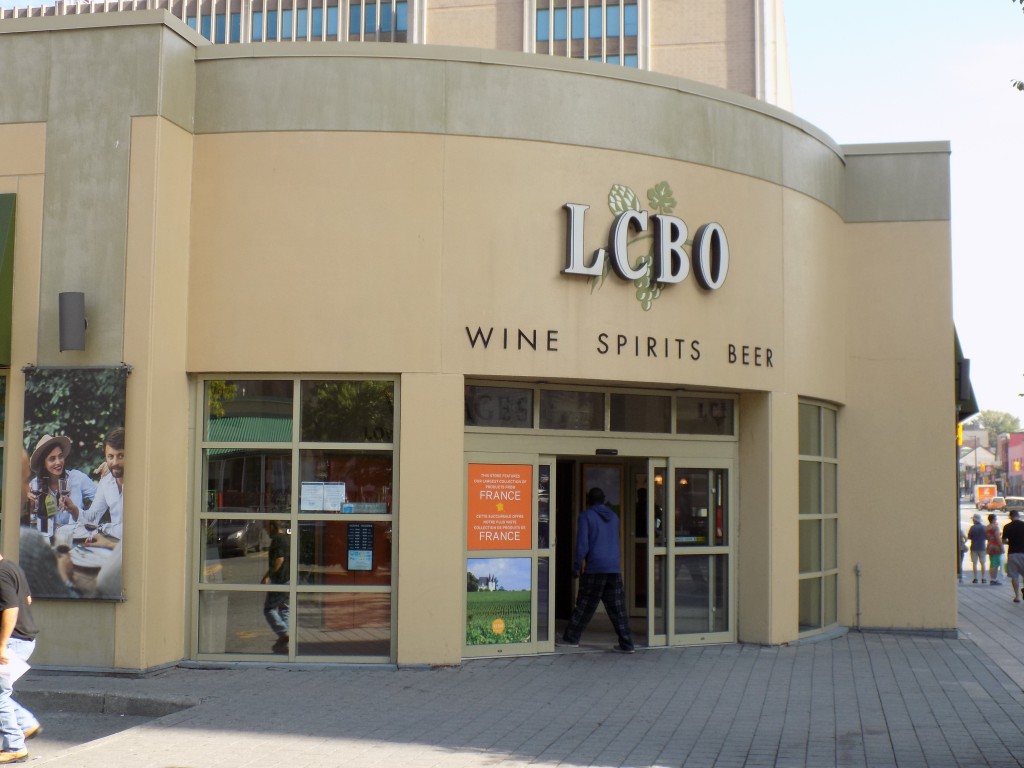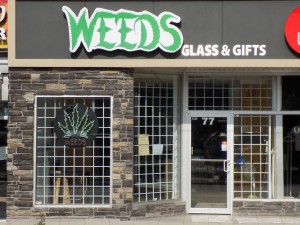Legal pot in Ontario to come with government retail and “cannabis college”

The LCBO store on Rideau Street in downtown Ottawa. The government agency will operate separate stores to sell legal cannabis. Photo: James Morgan
Government to Control Retail Sales
Legal marijuana is set to come to Canada in 2018, but there won’t be a retail bonanza for bud—at least not in Ontario. The province’s Ministry of Finance recently announced that cannabis in Ontario will be sold only through government-owned stores operated as a subsidiary of the Liquor Control Board of Ontario (LCBO), the government agency which has a near monopoly on wine and liquor sales. It’s the latest change as Canada’s economy and society adjust to the reality of cannabis becoming legal. Marijuana will not be sold in liquor stores, the province is instead planning to open 80 pot shops by 2019 and 150 by 2020.
A history of tight regulation
The Ontario government will regulate the price and every other aspect of distribution, much like it has with alcohol since its founding in 1927 when full federal prohibition ended in Canada and provinces were allowed to decide their own alcohol policies. Until the 1980s, LCBO stores in many Ontario communities were not even self-serve and were more like the inside of a bank or post office. Price lists were on the walls, customers went to counters and filled out slips requesting what they wanted, and then waited in line at a wicket. A clerk would go back into the shelves, retrieve the purchase, hand it to the customer in a paper bag, and take the payment. Until 1962, customers also had to have a permit to buy liquor. The permit book got stamped each time a purchase was made, and if purchases were made too frequently, service was denied. There were also numerous versions of lists of who could not purchase alcohol. Unfortunately, deciding who was on the list was often unfairly based on race, gender, and economic status. The permits and lists created a lucrative black market in booze sales. Bootleggers would sell to people who couldn’t buy at LCBO stores or get served in bars.
Impact on growers and retailers
The LCBO plan for marijuana won’t have permit books, or lists based on discrimination and racism. But, there will be limited to no advertising in the shops, as directed by federal law. The stores won’t be self-serve either. Municipalities will also be able to decide where a government weed store is set up, in case there are concerns about locating them near places like schools or facilities whose occupants may object. Staff at the new marijuana marts will also be heavily trained to detect underage shoppers and in the public health hazards of cannabis use. It’s an extension of the existing “social responsibility” policy the LCBO already has for alcohol sales.
I contacted the Vancouver-based Cannabis Growers of Canada, an organization representing craft growers for the existing legal medical cannabis trade. I wanted to see if they were concerned that existing craft growers will be shut out of government-owned retail stores. I did not receive a response but noticed on their website that craft cannabis marketing doesn’t look too different than that of craft beer with witty names and hipster-ish labels like Skunk Beard Extracts or Mary J’s Edible Medibles.
At least one large cannabis company is not concerned about their sales being limited by government stores in Ontario. Canopy Growth, which owns the Tweed brand, is based in Smiths Falls, Ontario. Spokesman Jordan Sinclair called the Ontario government’s plan “non-shocking news,” because Premier Kathleen Wynne had suggested it might use the LCBO for marijuana sales and pricing. Sinclair argued that small-scale growers will still have the ability to enter the market, and noted that the LCBO has assisted the craft beer industry in getting their products on its shelves. He said small growers can also form co-operatives to improve their marketing and distribution networks and that they will have to “get creative” in order to succeed in Ontario.
Ontario’s marijuana sales plan is clearly an attempt to stifle the black market. Illegal dispensaries, claiming to be for medical purposes only, have been opening in cities and towns. Ottawa Police have shut down several of the shops in recent months. Other shops advertise themselves as legitimate medical marijuana shops but heavily advertise other not-so-medical looking merchandise like bongs. WEEDS is one such store. I contacted their head office to find out if the company is concerned that the LCBO will affect their business but did not receive an answer. The WEEDS store in Ottawa’s Vanier neighborhood advertises “glass and gifts.” The only indication it’s a marijuana shop is a neon leaf sign and the store name.
Cannabis College
Legal pot means a business that was once in the hands of amateurs or criminal elements is becoming a big business. Higher education is even preparing for it. Niagara College, the community college in the Niagara region of Ontario recently announced a new certificate program in Commercial Cannabis Production will start in the fall of 2018. The courses are designed to teach students about best horticultural practices, optimizing crop yields, marketing, and regulation so they are prepared for careers in the cannabis industry. Niagara College President Dan Patterson said the college was being pre-emptive and trying to respond to an emerging industry. The plan proves the line in Ontario’s unofficial anthem–the province really is “A place to stand and a place to grow.” Program’s like the one at Niagara College would have been unthinkable a decade ago, but the situation is changing, and along with the decision to sell cannabis in government-owned stores in Ontario, it is another example of a society and economy adapting to a new reality.








